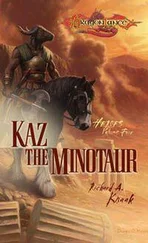‘How about that?’ she said. ‘Never say I don't have your interests at heart, Mother.’
Mrs Cosway said nothing. She made a sour face, signifying disapproval or mild congratulation. It was hard to say. Zorah's declaration had turned the latest capturing of the geode into an anticlimax.
‘I've got the harp too but I'll need someone to help me downstairs with it.’ Ella turned to me. ‘Kerstin? Come and help me and then we'll have a drink.’
‘Kerstin has to get John to bed,’ said Mrs Cosway.
‘Not yet, surely? I thought he was going to bed later these days? He isn't tired at seven, Mother. He's not a baby.’
It was true that since Mrs Cosway's accident John's bedtime had subtly moved towards half-past seven, towards eight, then nine. It was all part of his slow improvement, his gradual progress towards becoming a human being.
‘Everything I say is overruled these days,’ said Mrs Cosway. ‘It has happened since I fell downstairs. Who would have thought an accident happening through no fault of one's own would change a whole family's attitude towards one? Who would have thought my children would decide to turn me into a senile old woman with softening of the brain?’
‘Don't be absurd, Mother.’ This was Winifred, who had been fidgeting about for the past half-hour, looking at her watch and apparently listening for something she might miss if she failed to concentrate.
‘No one thinks that I have been bereaved. If one of you had died I should receive boundless sympathy.’ Mrs Cosway looked her daughters up and down as if such sympathy would have been misplaced. ‘But the fact that I've lost the only man I ever loved means nothing to any of you.’
Winifred pulled her soon-to-be-Rector's-spouse face. ‘You shouldn't talk about it. You should keep it to yourself. It’ not – not seemly.’
‘What would you know? You and that fiancé of yours. Now there is an old woman.’
It has always struck me as strange that the people who make this remark are usually old women themselves. What Winifred might have said in reply was never uttered. The phone began to ring in the dining room. It first made her jump, then run out of the room, calling, I'll get it, I'll get it,’ as she went.
I went upstairs with Ella, who was carrying a bucket of ice she had fetched from the kitchen. Into this went a bottle of her favourite rosé, cooling while she broke a large bar of fruit-and-nut milk chocolate into squares, a curious choice to go with wine. We lugged the heavy gilded harp downstairs but left it in the hall, where it brightened things up a good deal. Back in her bedroom, the dolls in their fashionable clothes seemed to be staring at us, possibly warning us, to judge by their stick-thin figures, of the dangers of consuming chocolate. I had half forgotten how feminine the room was, how many yards of frills it contained, how many ribbons and artificial flowers. The nightdress case on the bed, a pale blue satin heart with pink and white appliqué roses, I was sure I had never seen before.
Ella poured us each a glass of wine. ‘I'm thinking of getting sloshed this evening. Now don't look like that, it's not something I make a habit of. But Felix is meeting an old schoolfriend in Colchester so we can't see each other.’ She took a big gulp of her wine. ‘That's better. Isn't Mother impossible sometimes? And Zorah! I don't know what you must think of us.’ Correctly receiving my smile as meaning my thoughts could be of no consequence, she changed tack entirely. ‘I don't think I ever told you how I came to dress the dolls, did I?’
‘No, you never did.’
‘Well, I thought those peasant dresses they were in were too impossibly old-hat – sorry about the pun – for words, but it took a bit of a nerve stripping them off.’ She giggled. ‘Everyone knows everything that goes in in this house, you see – well, you must know – and I thought Mother would make a frightful fuss, but I was all prepared to say to her, no one wears those clothes any more, not in the countries they come from they don't. I started making the clothes for them. I copied them from pictures in magazines. I spent a fortune on Vogue , you wouldn't believe. And when they were all done I was really proud of them. Winifred came in here and so did Mother and, would you believe it, they never noticed a thing.’
I laughed appropriately, then asked her, because it seemed a question she would like, how she was getting on with making her bridesmaid's dress.
Her face clouded. ‘I haven't even got the material yet and the wedding's in about eight weeks. Of course I can do it in that time but Winifred hasn't made up her mind about the colour. And I'm doing June Prothero's too, you know.’
Having no idea how long it would take to make a dress, a task beyond the skills of anyone I knew, I couldn't offer an opinion. She refilled her glass, admonished me for drinking so slowly and said, ‘I have to tell you something. I don't think Felix is the marrying kind. You'll say that doesn't matter so long as he loves me.’
I was tired of denying these comments attributed to me. ‘I suppose it may matter to you,’ I said.
‘Do have some more wine. I'm on my third glass. As for mattering, I tell myself love's better without marriage, it lasts longer. Look at Mother and Dr Lombard. I mean, that was immoral and cruel to Dad and a scandal and everything, but it was love and it did last.’
An interesting sidelight on sex education, I thought, when a mother teaches her daughter to prefer illicit love to marriage and teaches her by her own example.
‘I really do love him, Kerstin. He's “the very eyes of me” like that poem, I don't know who wrote it. I adore him.’
And I could see she did, her pretty face held up to the light, flushed rose with the rosé, a look in her eyes of yearning and need. Then she said, leaving the subject completely, ‘I've been meaning to tell you something ever since this improvement to John. You know the way they're always talking about this mental trouble of his starting with an emotional shock? Well, they haven't told you what the emotional shock was, have they?’
I agreed that they hadn't.
‘When he was a little boy he wandered into Mother's bedroom in the middle of the afternoon. She thought he was asleep. But he wasn't and what he saw was her and Dr Lombard in bed together. How about that for the primal scene?’
Though I tried to look suitably impressed, I didn't believe that what John had seen would have had much effect on him. Autism, they were saying even then, always had a physical cause.
‘Ida told me. John went running to his big sister – that's how she put it – and told her what he'd seen. She said she didn't believe him but she did later on. I don't know if Mother knew – I mean, if she saw John – but I'm sure Lombard didn't or he wouldn't have gone on talking about emotional shocks. He'd have kept quiet on that one.’
I left her to the rest of the wine. John and Mrs Cosway were alone in the drawing room. She seemed to be asleep, lying on the sofa with the leg plaster propped up on one of the arms. If I had not known such behaviour was impossible for John, I would have thought his determined attempts to read the telephone directory purposely staged to annoy his mother, and also perhaps to hasten a consultation with a specialist. But Asperger's people never behave like this, they have no involvement with others' emotions, and although I then had no name for his condition, I knew its manifestations. John tried to read because, after his long drug-induced stupor, he was waking up to a desire for knowledge and a need to use his failing sight. His mother came into it not at all. As far as he was concerned, she was there as we all were, because we were there. Like the furniture but inferior to the Roman vase.
Читать дальше












